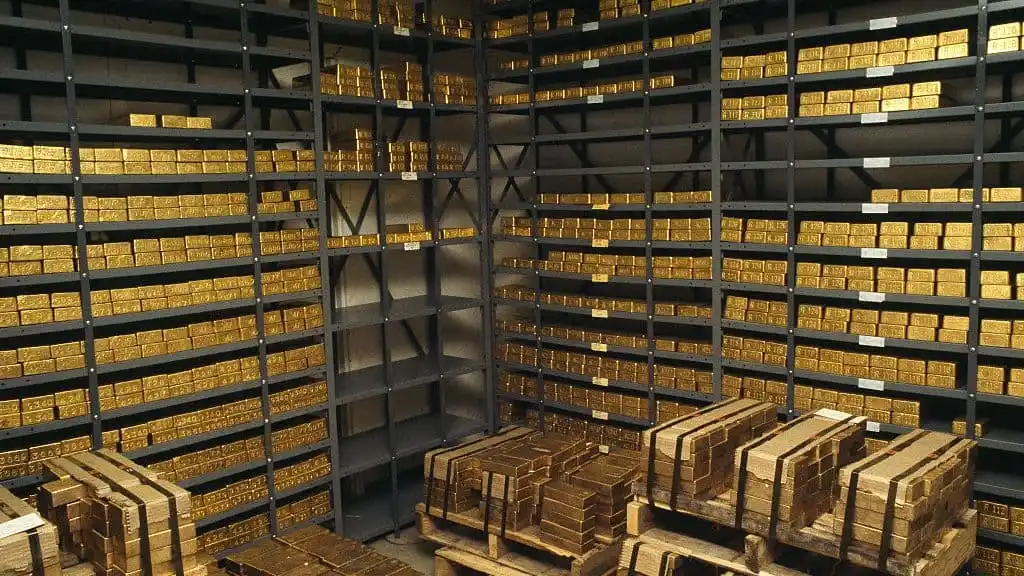Russia’s $140 billion gold supply could be sold at a discount after Western sanctions halted open-market trade.
With over 2,300 tonnes of gold stored in Bank of Russia vaults in Moscow and St. Petersburg, Russia has the world’s fifth largest gold supply.
Vladimir Putin increased Russia’s gold reserves following the 2014 invasion of Crimea in order to shield Moscow from global sanctions.
However, new restrictions imposed by the United States, the European Union, and others prevent Russia’s central bank from doing business with the West.
Global traders and banks, which would normally buy Russia’s bullion in exchange for currency, now fear the negative publicity or direct financial consequences of doing business with Russia.
That means severing one of Russia’s most valuable economic security routes – and it appears to be working.
‘This is why they bought their gold, for a situation like this,’ said Cork University business lecturer Fergal O’Connor to Bloomberg.
‘But it doesn’t matter if no one will trade it with you.’
Instead, Russia may be forced to sell its once-profitable supply – worth more than £100 billion – to central banks in India and China.
CPM Group, a commodities analyst firm, predicts that those deals will be more affordable.
And the blow to Russia could be exacerbated if Western politicians extend so-called “secondary sanctions” to punish anyone who buys or sells Russian gold anywhere, including key market China.
The London Bullion Market Association, the world’s largest, banned all gold bars made in Russia earlier this month.
Russians are buying gold as a safe haven from the collapse of the ruble, allowing domestic values to remain stable.
Russia’s once-reliable gold reserves, on the other hand, have been left out in the cold.




















